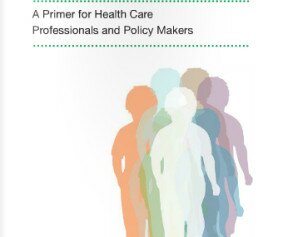Archive for News
FREE Treating Autism publication on Intensive Interaction
BRAND NEW Treating Autism publication on Intensive Interaction written by an I.I. coordinator / mother of a child with autism. Published and made freely available by Treating Autism. Intensive Interaction is a simple to learn, relatively inexpensive, and hugely enjoyable method for reaching and interacting with children and adults with…
Treating Autism Conference 2014
THANK YOU to all the wonderful parents, professionals speakers and volunteers who came from far and wide to support our latest conference. Our latest conference, which took place on 8-9 November, 2014 at Brunel University, UK, was aimed at both professionals and parents, and featured a wide variety of speakers…
Autism rates continue to climb, cannot be accounted for by ‘better awareness’
The new numbers, compiled in 2010 and just released by the U.S. Centers for Disease Control and Prevention, show the rate of autism has more than doubled in the last eight years. The numbers of children affected by autism have gone up in every socioeconomic group and region, and can…
Children with regressive autism show improvements following steroid therapy!
Harvard Medical School finds that children who received prolonged steroid therapy following their regression into autism later show better functioning and improved symptoms compared to children who receive no treatments. Up to a third of children with Autism Spectrum Disorder manifest regressive autism – they show normal early development followed…
Quality Standards for Autism care published by NICE
Treating Autism is pleased to announce that Quality Standard for Autism (QS51) has been published by the National Institute of Clinical Excellence (NICE). We are hopeful that it will lead to more awareness and investigations of co-occurring medical conditions in autism, including epilepsy and gastrointestinal disorders. There is an overwhelming…
Recovery from childhood Autism
Given the appropriate interventions and hard work, some children completely lose their autism symptoms, and many others can be helped to achieve much higher level of functioning in later life. Listen to scientists discuss these groundbreaking findings here.
CDC confirms children with Autism have many unmet medical needs
A recent study conducted by US Centers for Disease Control and Prevention confirms that children with autism face an increased risk for many common health conditions. This detailed assessment demonstrates that children with autism had much higher than expected rates of all of the medical conditions studied: frequent gastrointestinal problems…
Gut flora and gastrointestinal status
Gut flora and gastrointestinal status in children with autism correlates with autism severity A study by Arizona State University found strong correlation of gastrointestinal symptoms with autism severity. Their results indicate that children with more severe autism are likely to have more severe gastrointestinal symptoms and vice versa. The results…
Medical Comorbidities in Autism Spectrum Disorder
Widespread reports of severe medical conditions being attributed, without investigation and sometimes without physical examination, to ‘autism behaviours’ have compelled the creation of this document in order to present relevant information to healthcare providers, policy makers and the wider audience. A summary of current research, including the positions of leading…

